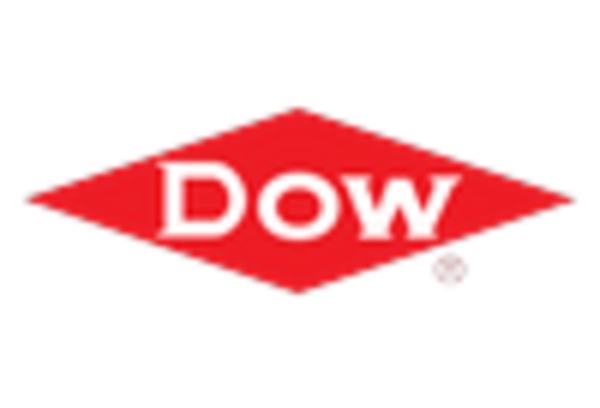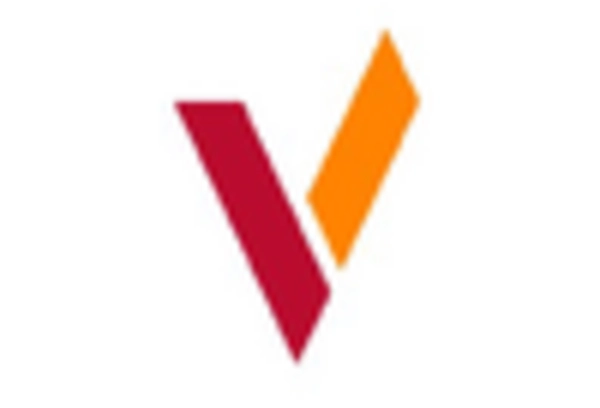Increased Focus on Aesthetic Appeal
The growing focus on aesthetic appeal in architectural designs is another significant driver for the Silicone Structural Glazing Market. Architects and designers are increasingly prioritizing visual impact, leading to a preference for materials that offer sleek, modern appearances. Silicone structural glazing systems allow for expansive glass facades and unique shapes, enhancing the overall aesthetic of buildings. Market data suggests that the demand for visually striking buildings is on the rise, with a notable increase in projects that incorporate glass and glazing solutions. This trend is likely to continue, as consumers and businesses alike seek to create visually appealing environments that reflect contemporary design principles.
Rising Demand for Energy Efficiency
The increasing emphasis on energy efficiency in building designs appears to be a primary driver for the Silicone Structural Glazing Market. Architects and builders are increasingly opting for materials that enhance thermal performance and reduce energy consumption. Silicone structural glazing systems provide superior insulation properties, which can lead to significant energy savings. According to recent data, buildings utilizing silicone structural glazing can achieve energy savings of up to 30% compared to traditional glazing systems. This trend is likely to continue as regulatory frameworks increasingly mandate energy-efficient building practices, thereby propelling the demand for silicone structural glazing solutions.
Urbanization and Infrastructure Development
Rapid urbanization and ongoing infrastructure development projects are likely to fuel the growth of the Silicone Structural Glazing Market. As urban populations expand, there is a pressing need for modern, aesthetically pleasing buildings that can accommodate growing populations. Silicone structural glazing offers architects the flexibility to create innovative designs while ensuring structural integrity. Recent statistics indicate that urban areas are expected to house over 68% of the world's population by 2050, necessitating the construction of new residential and commercial buildings. This surge in construction activities is expected to drive the demand for silicone structural glazing solutions, as they are increasingly favored for their durability and design versatility.
Technological Innovations in Glazing Solutions
Technological advancements in glazing solutions are playing a crucial role in shaping the Silicone Structural Glazing Market. Innovations such as self-cleaning glass, smart glazing, and enhanced durability features are becoming increasingly prevalent. These advancements not only improve the functionality of silicone structural glazing but also expand its application range. For instance, self-cleaning glass reduces maintenance costs, making it an attractive option for high-rise buildings. The market is witnessing a shift towards integrating technology with traditional glazing methods, which is expected to enhance the performance and appeal of silicone structural glazing systems. This trend indicates a promising future for the industry as it adapts to evolving consumer needs.
Regulatory Support for Sustainable Building Practices
Regulatory frameworks promoting sustainable building practices are likely to bolster the Silicone Structural Glazing Market. Governments and regulatory bodies are increasingly implementing policies that encourage the use of eco-friendly materials and construction methods. Silicone structural glazing aligns well with these initiatives, as it is often manufactured using sustainable practices and contributes to energy-efficient building designs. Recent legislative measures in various regions have set ambitious targets for reducing carbon footprints in construction, which may further drive the adoption of silicone structural glazing solutions. This regulatory support is expected to create a favorable environment for market growth, as builders and developers seek compliant and sustainable options.














